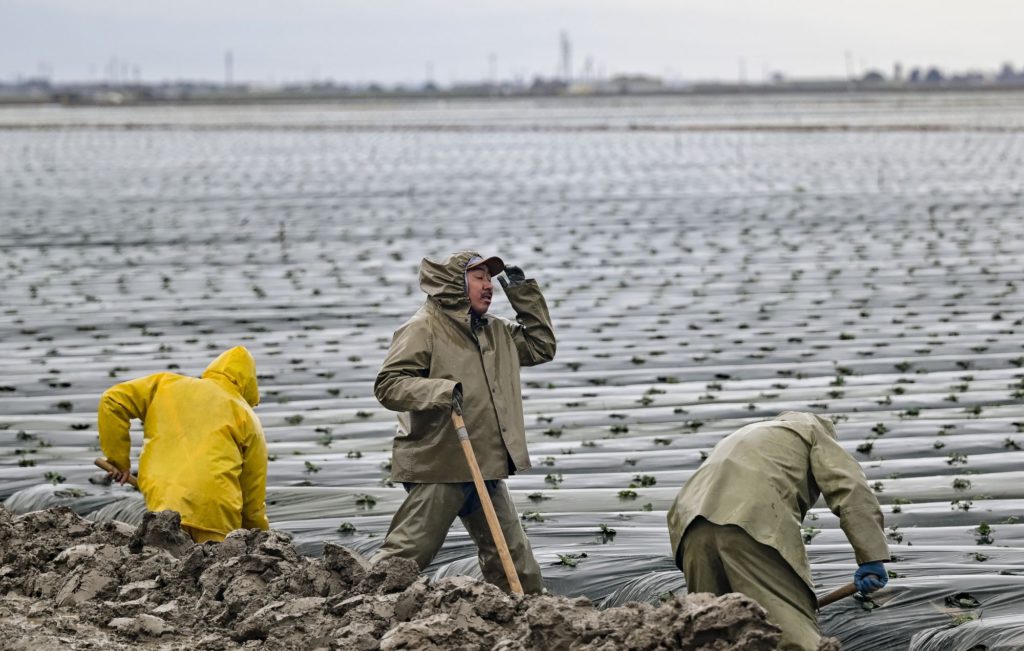California farmers are facing costly damages from weeks of severe storms that may trigger more expensive US fruits and vegetables in a time of massive food inflation.
(Bloomberg) — California farmers are facing costly damages from weeks of severe storms that may trigger more expensive US fruits and vegetables in a time of massive food inflation.
“The numbers are going to be somewhere in the hundreds of millions and perhaps in the billions,” Dave Puglia, head of the trade group Western Growers, said in a phone interview, adding that almost all of those damage costs will be on California’s Central Coast.
Some growers on that region — known as the “Salad Bowl of America” — can’t even start cleaning up because of fields thick with mud and debris. While three weeks of unrelenting rain brought urgently needed water to drought-stricken California, the subsequent flooding will delay planting in a state where agriculture is a $50 billion industry.
“It’s safe to say there will be a gap in production sometime this spring when those crops would have been coming out the field,” said Puglia, whose group represents producers responsible for more than half the fresh fruit, vegetables and tree nuts in the US. “That will reduce supply and inevitably lead to some higher prices on the shelf.”
Related: California storm damage as much as $7 billion, Moody’s estimates
The scenario will leave some farmers to figure out how to supply national restaurant chains and food distributors that typically would be buying up their lettuce, berries, broccoli and other produce in just a couple months.
Flooding is prompting Church Brothers Farms to plant extra acres and linger in the southern desert region of California and Arizona longer than normal to avoid a supply shortfall. Growers normally move back up north around March because of excessively hot desert temperatures.
“I have to sell my customers something,” said Ernst van Eeghen of Church Brothers Farms. “These restaurant chains can’t be out of lettuce suddenly, so I have to find ways to supply them.”
More stories like this are available on bloomberg.com
©2023 Bloomberg L.P.










